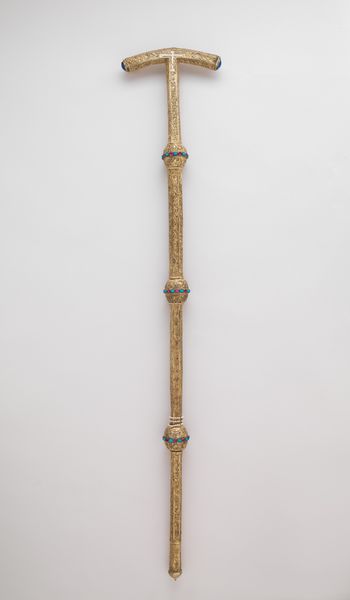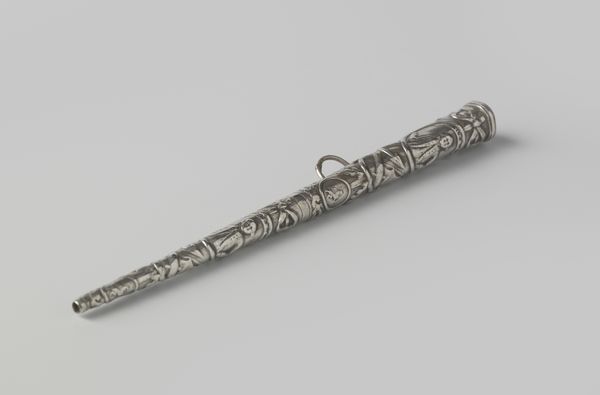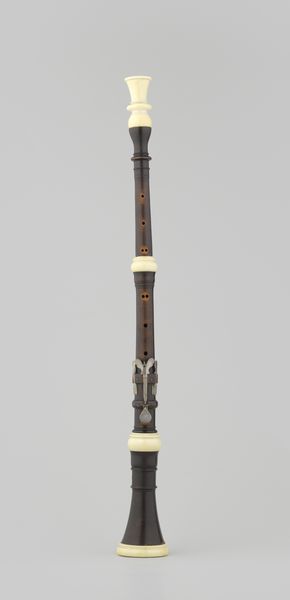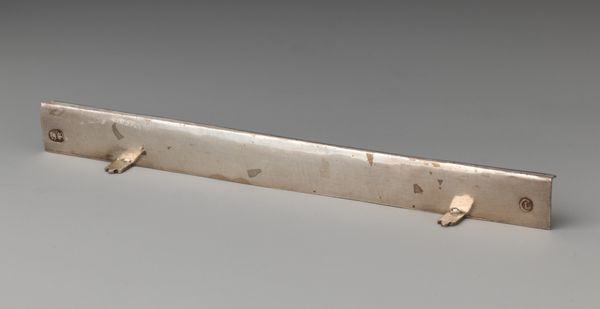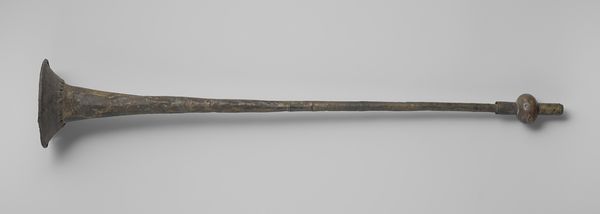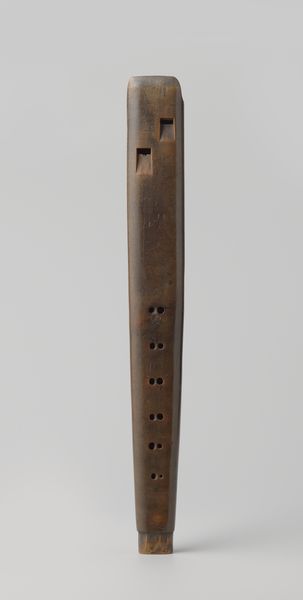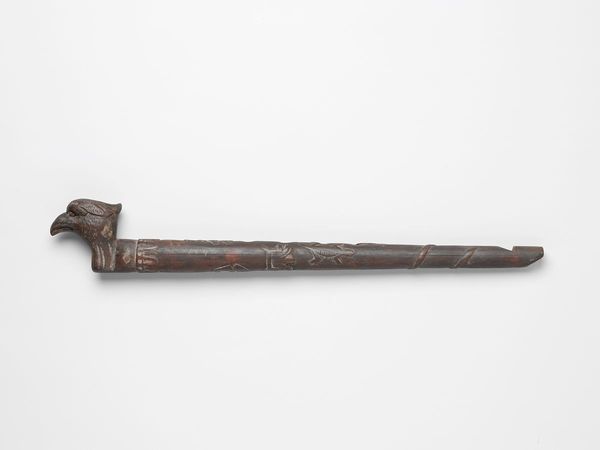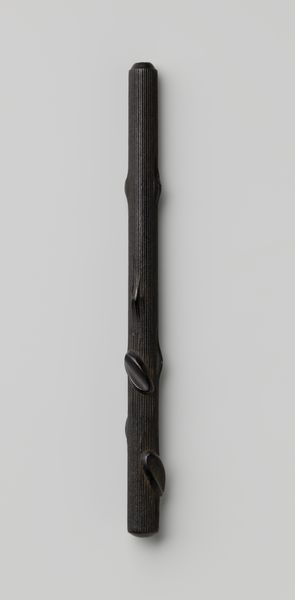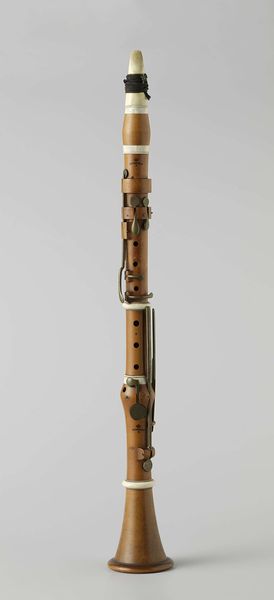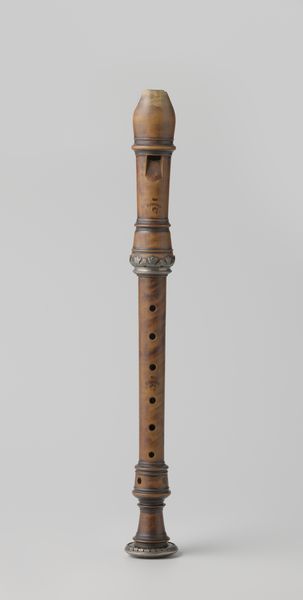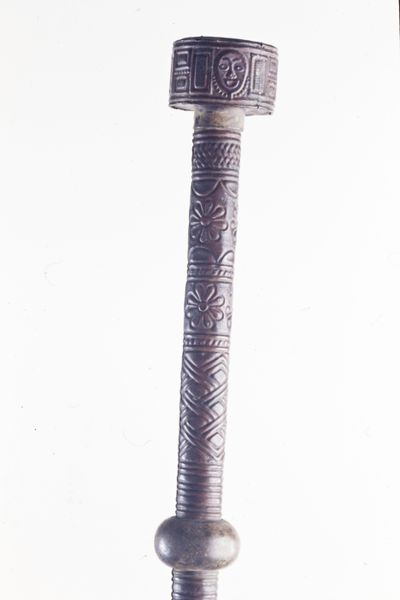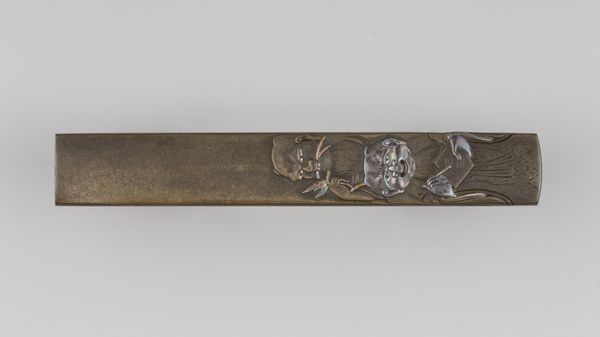
Model of a Basilisk (Cannon) for Emperor Charles V (1500–1558) 1523
0:00
0:00
metal, sculpture
#
metal
#
sculpture
#
11_renaissance
#
sculpture
#
history-painting
#
italian-renaissance
#
statue
Dimensions: L. 29 1/2 in. (74.9 cm); Cal. .875 in. (22.2 mm); Wt. 27 lb. 2 1/2 oz. (12.32 kg)
Copyright: Public Domain
Pietro d'Arena crafted this model of a basilisk cannon, likely in the early 16th century, for Emperor Charles V. Notice the intricate form – a study in metalwork where each section is delineated by bands and geometric cutouts, giving the object a structured rhythm. The cylindrical shape, punctuated by decorative elements, showcases a tension between functionality and artistry. The cannon's surface is covered in carefully etched designs of foliage, and heraldic symbols which invite closer inspection. The details aren’t merely ornamental, but are integral to the cannon's identity, transforming it into a powerful signifier of imperial authority. Consider the symbolism, too: the basilisk, a mythical serpent whose gaze could kill, reinforces themes of power and dominance. This cannon embodies a complex interplay between form, function, and symbolic intent, reflecting a sophisticated understanding of how objects communicate status and control.
Comments
No comments
Be the first to comment and join the conversation on the ultimate creative platform.
